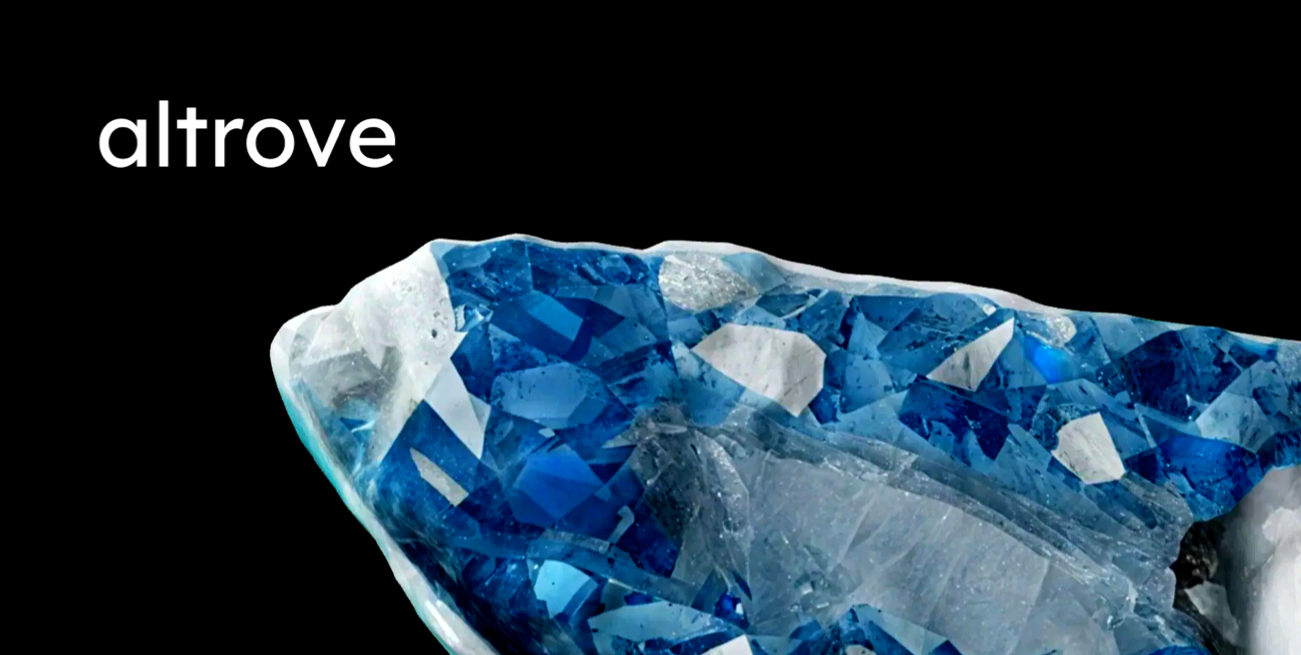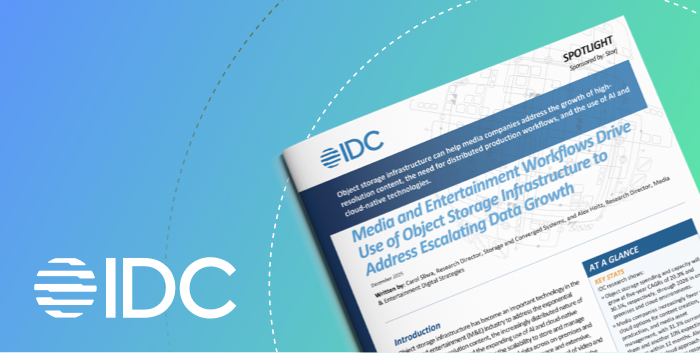
Through our AI Innovator Spotlight series, we’re highlighting startups doing something truly extraordinary—solving world-changing problems with urgency, creativity, and impact.
Alternative materials used to be a fantasy. Now they’re a strategy.
Until now, finding viable alternatives to rare earth elements (REEs) was considered almost impossible. The process was too slow, too expensive, and too uncertain. Most companies simply accepted the risk—optimizing around shortages, price spikes, and geopolitical instability because there was no real alternative.
Altrove is changing that. With a breakthrough approach combining AI, simulation, and lab automation, discovering and validating new materials is no longer a research fantasy—it’s a viable strategy. And it couldn’t be coming at a more urgent time.
Why Altrove’s work matters more than ever.
In 2025, the global supply chain for REEs is under enormous pressure. China, which processes about 90% of the world’s REEs, has imposed strict export controls on critical elements like dysprosium and terbium. These materials power everything from electric motors and missile guidance systems to iPhones and laptops.
But China’s restrictions aren’t the only factor. The world’s overreliance on a single processing hub has collided with a wave of broader challenges:
- Lack of diversified supply chains — Countries like the U.S. and Australia are investing in domestic capabilities, but the infrastructure is years behind.
- Environmental and regulatory barriers — REE mining and processing are energy-intensive and environmentally sensitive. New facilities face long delays.
- Rising global demand — As EVs, defense systems, and electronics all scale simultaneously, REE demand is outpacing sustainable supply.
A bottleneck that’s hitting mission-critical industries right where it hurts.
The impact is immediate:
- EV & auto manufacturers — Tesla, GM, VW, and others rely on REEs for motors, batteries, and drivetrains. European suppliers have already been forced to halt production due to shortages.
- Consumer electronics & semiconductors — Apple, Intel, Samsung, and TSMC all need REEs for essential components. Shortages here ripple across product cycles.
- Aerospace & defense — Lockheed Martin, Raytheon, and BAE depend on REEs for radar, guidance, lasers, and aircraft systems. In this context, delays are more than inconvenient—they’re strategic threats.
And yet, none of these companies are actively developing REE alternatives. Why? Because they can’t.
Everyone’s stuck playing defense.
Developing entirely new materials isn’t in their wheelhouse. These companies are experts in product design, systems integration, and manufacturing—not in fundamental materials science. Discovering and validating a new material has traditionally taken years of trial-and-error lab work. It’s slow, risky, and expensive.
So most companies have defaulted to workarounds:
- Designing around REEs — For example, some EV manufacturers are reverting to older induction motor designs that don’t require REEs, even though they’re less efficient and heavier, which can reduce overall vehicle performance and range.
- Stockpiling or reshuffling suppliers — Companies are scrambling to build short-term reserves or source REEs from friendlier nations, which is often expensive and unreliable. In some cases, components are being shipped to China for final assembly just to gain access to REE-rich parts.
- Investing in recycling programs — Some electronics and auto companies are ramping up rare earth recycling initiatives, but the volume recovered is a fraction of what’s needed, and the processes remain energy-intensive and inefficient.
But these stopgap measures don’t solve the core problem.
Altrove: the missing link.
Altrove fills the gap that legacy OEMs, electronics giants, and even governments can’t. Their platform is purpose-built to identify REE alternatives—fast.
Using machine learning to search vast chemical spaces, simulate physical properties, and propose viable synthesis routes, Altrove can discover and validate new materials in weeks instead of years.
It’s not just AI for predictions. It’s AI that delivers real-world materials—ready for testing and scale.
That means:
- EV makers can de-risk supply chains without compromising on performance.
- Electronics manufacturers can get ahead of regulatory and sourcing bottlenecks.
- Defense contractors can reduce foreign dependence—while improving capability.
Altrove delivers what these companies wish they could build—but realistically never will.
Not just another AI startup.
This Paris-based team is applying artificial intelligence to a global, high-stakes problem: how to build a sustainable, sovereign, and scalable supply of critical materials.
The implications extend far beyond industrial use:
- Lower environmental impact — by reducing dependence on REE extraction
- Increased national sovereignty — by enabling domestic sourcing and innovation
- Support for global climate goals — by helping manufacturers reduce emissions
- Benefits for everyday people — by keeping EVs, phones, and medical devices affordable and accessible
In a sea of AI companies chasing short-term novelty, Altrove is using AI to expand what’s possible in science itself.
Born from one of the world’s top accelerators.
Altrove launched out of Entrepreneur First, the elite accelerator behind companies like Tractable, Magic Pony (acquired by Twitter), and Cleo. EF backs founders at the very beginning—before the product, before the pitch deck—just based on talent and ambition. Altrove’s selection speaks volumes about the team’s trajectory.
A world-class founding team.
- Dr. Joonatan Laulainen, co-founder and CTO, holds a PhD in physics from Cambridge and previously worked at CERN. His background in simulation and modeling is rare—and critical to Altrove’s approach.
- Thibaud Martin, CEO and second-time founder, brings operational depth and startup discipline.
Together, they’ve raised €3.7M from top angels, including Hugging Face CTO Julien Chaumond.
Ready for what’s next.
Altrove is already working with R&D and manufacturing leaders who need to move faster and smarter. Whether you’re building electric vehicles, developing defense systems, or sourcing the next generation of components—this is a team to watch and work with.
We’re proud to support their work.

















